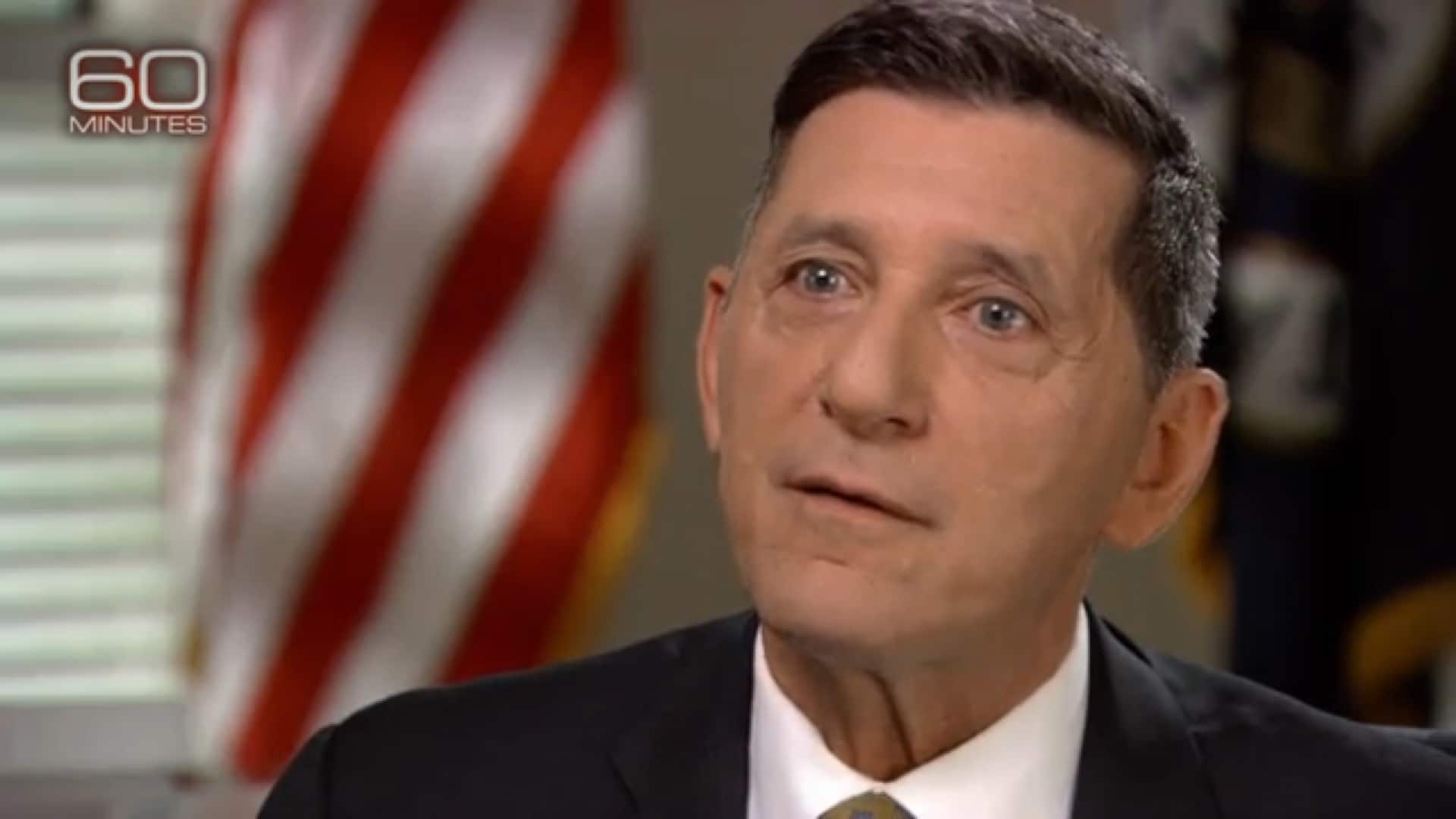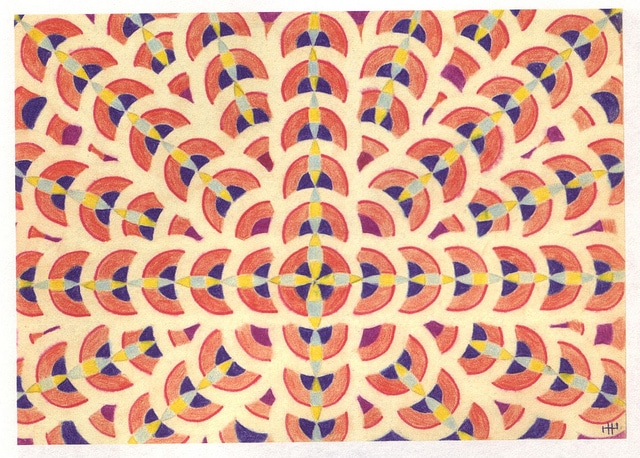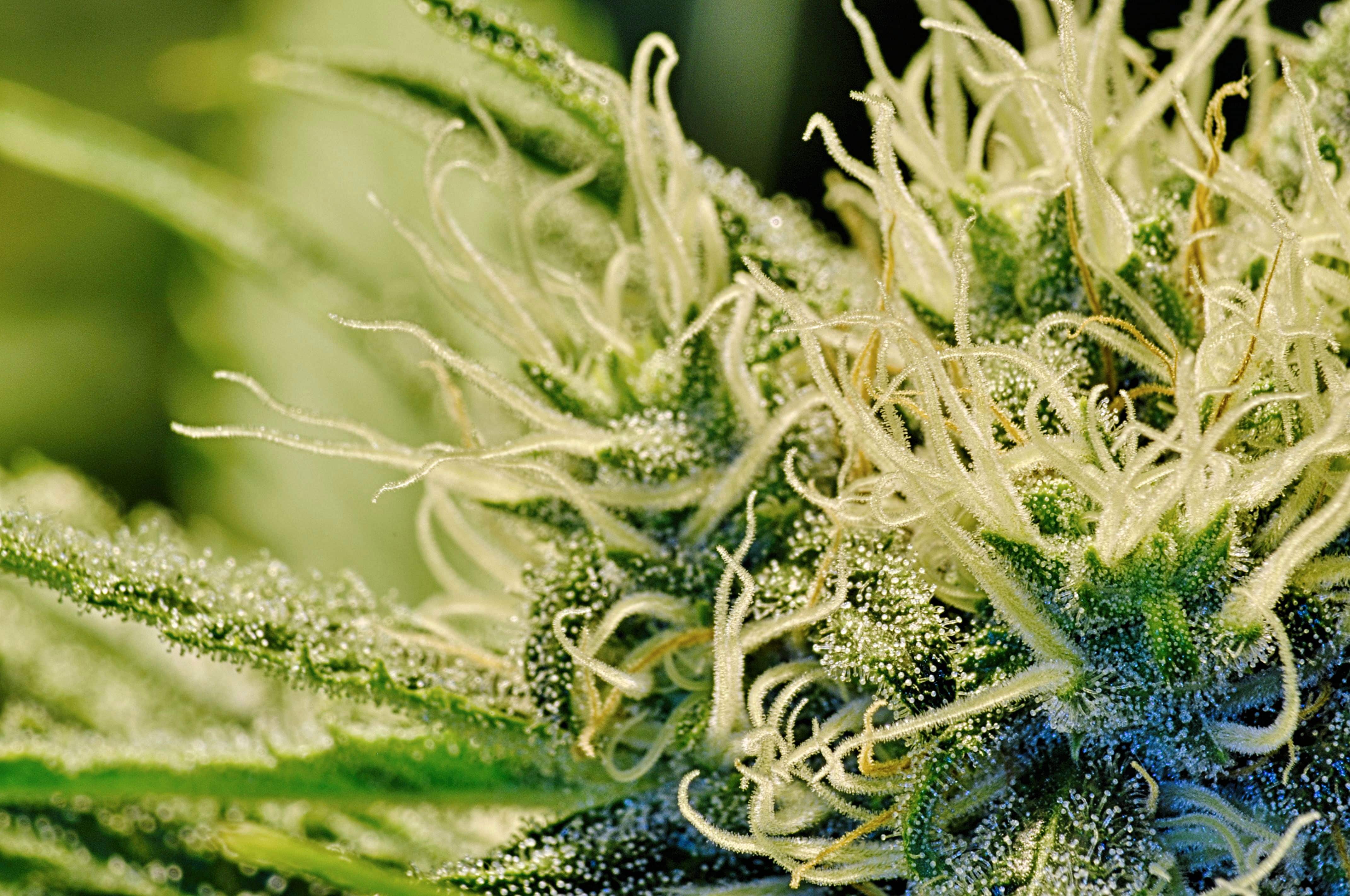
Michael Boticelli’s interview for 60 Minutes provided a breath of fresh air for many in the US who have tired of the old War on Drugs rhetoric. | Image Source: Screenshot from 60 Minutes interview
Michael Botticelli is President Obama’s new drug czar, but he wouldn’t want you to call him that. Botticelli, who was appointed unanimously in February of 2015 as the Director of the Office of National Drug Control Policy, has a very different take on drug policy and addiction than most of his predecessors, which he made abundantly clear on his recent interview on 60 Minutes.[1.”A New Direction on Drugs,” CBS News, December 13, 2015, https://www.cbsnews.com/videos/a-new-direction-on-drugs/.] His progressive rhetoric, which is informed by his own struggles with alcoholism and addiction, is a breath of fresh air for those who have had their lives impacted by the War on Drugs or who oppose the paradigm of incarceration instead of harm reduction. Today, we’re taking a look at some of the key points that Botticelli raised during this bombshell interview.
The War on Drugs Is a Failure
From the very beginning of the interview, Botticelli calls the War on Drugs a saga of “failed policies and failed practices” that have been “all wrong.” Citing the ineffectiveness of incarceration and punishment in lessening drug abuse, he goes on to say that our punitive approach has been supremely ineffective on multiple counts.
“We can’t arrest and incarcerate addiction out of people. Not only do I think it’s really inhumane, it’s not effective, and it costs us billions upon billions of dollars to keep doing this. We’ve learned that addiction is a brain disease. This is not a moral failing; this is not about bad people who are choosing to continue to use drugs because they lack will power.”
While this perspective is radically new for someone in his position, it is shared by many others who have been studying the real effects of the global War on Drugs, including the United Nations Office on Drugs and Crime. Botticelli has already put some muscle behind his words, championing high school programs for teens in Massachusetts as the Director of Substance Abuse Services and expanding drug courts in D.C. to allow drug offenders to choose treatment over jail.
Botticelli is a Recovering Alcoholic
Botticelli’s readiness to empathize with drug offenders and look at the bigger picture of addiction and its root causes stems largely from his own experiences with alcoholism. In his 20s, Botticelli was a heavy drinker who had a rude awakening when he crashed into another car while driving drunk. Thanks to a lenient court judge, he was offered an opportunity to head into a treatment program rather than head to jail, leading him to enter Alcoholics Anonymous and have a transformative experience that lead to a new sober life. This experience in the trenches with other addicts has left him with a deep empathy for others struggling with addiction, something that has been sorely lacking in policymakers in the past few decades where drugs and drug users alike have been heavily demonized.
Addiction is a Brain Disorder
Another key perspective that Botticelli has about addiction is that it represents a brain disorder rather than a lack of willpower. Research has shown that addiction has long-lasting effects on brain chemistry.[2.”Neuroaddiction: The Reward Pathway,” The Chemical Carousel, accessed December 29, 2015, https://www.dirkhanson.org/neuroaddiction.html.] Botticelli cited the fact that addiction influences the brain on a chemical level in ways that severely impact judgement, and as such we should see addicts as people in need of help rather than criminals deserving of punishment. He drove this point home with the quip, “We don’t expect people with cancer to will themselves out of it.”
Marijuana and Beyond
Despite his very progressive views overall, Botticelli is currently against marijuana legalization. While this is somewhat of a disappointment, the marijuana legalization movement seems to be doing just fine on the state level, and perhaps it would be too much to ask for the new drug czar not just to have radically progressive views about the addiction and the War on Drugs, but to also be an avid marijuana enthusiast. Looking at the big picture, we can still be very happy that the highest authority on drug enforcement in the country is solidly in the camp of harm reduction rather than incarceration.
When it comes to psychedelics, Botticelli did not mention them in the 60 Minutes interview, nor anywhere else on record that we could find. One can hope that Botticelli will follow his own advice about letting science inform policy and remain open minded about psychedelic treatments just as the founder of his fellowship Alcoholics Anonymous, Bill Wilson, did.[2.”Bill Wilson’s Experience with LSD,” AA Agnostica, May 10, 2015, https://aaagnostica.org/2015/05/10/bill-wilsons-experience-with-lsd/.] Nevertheless, this step towards reform surrounding all illegal substances in the United States is one in the right direction, and we’re eager to see where Botticelli will lead the national conversation next on drug policy.










